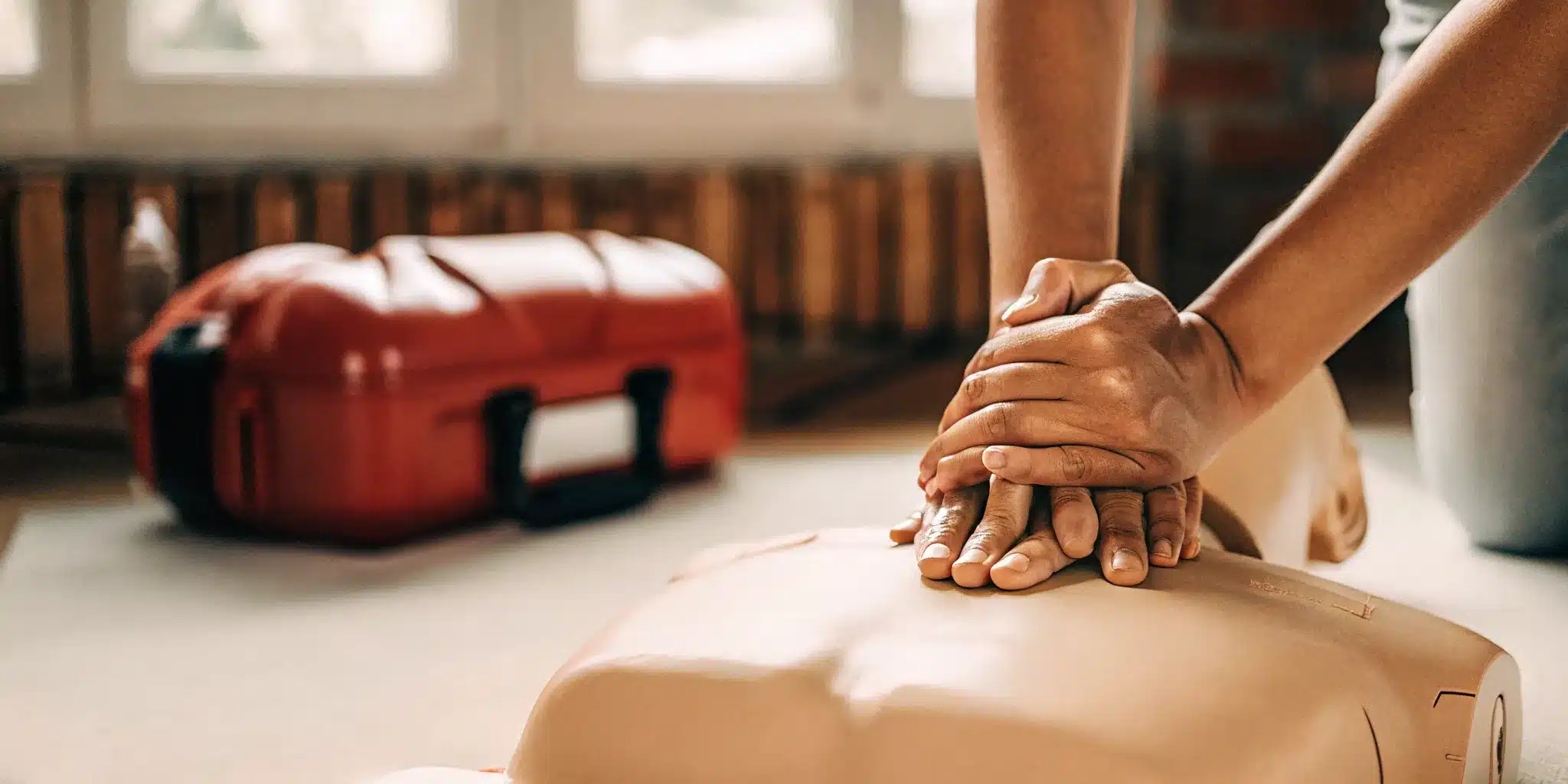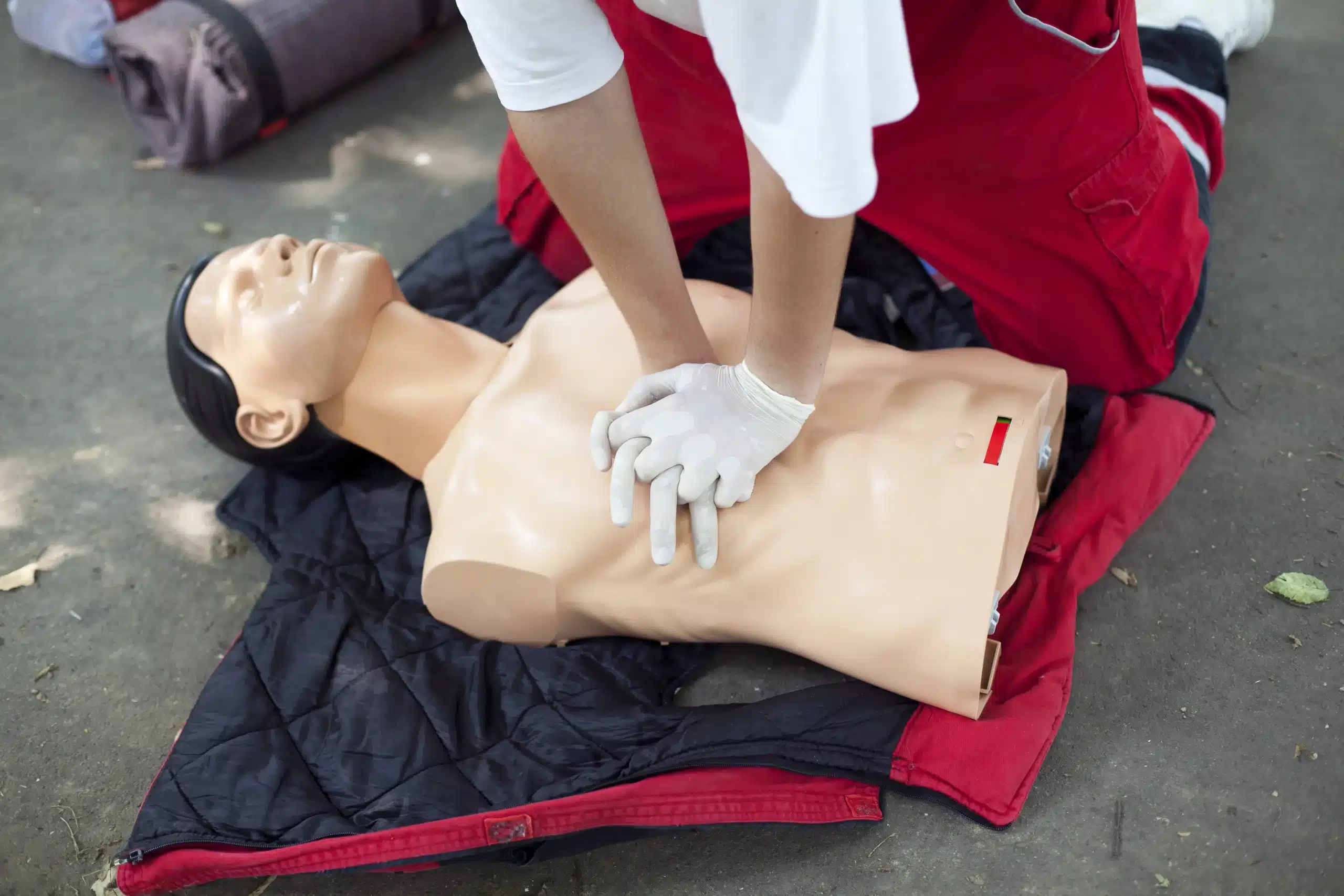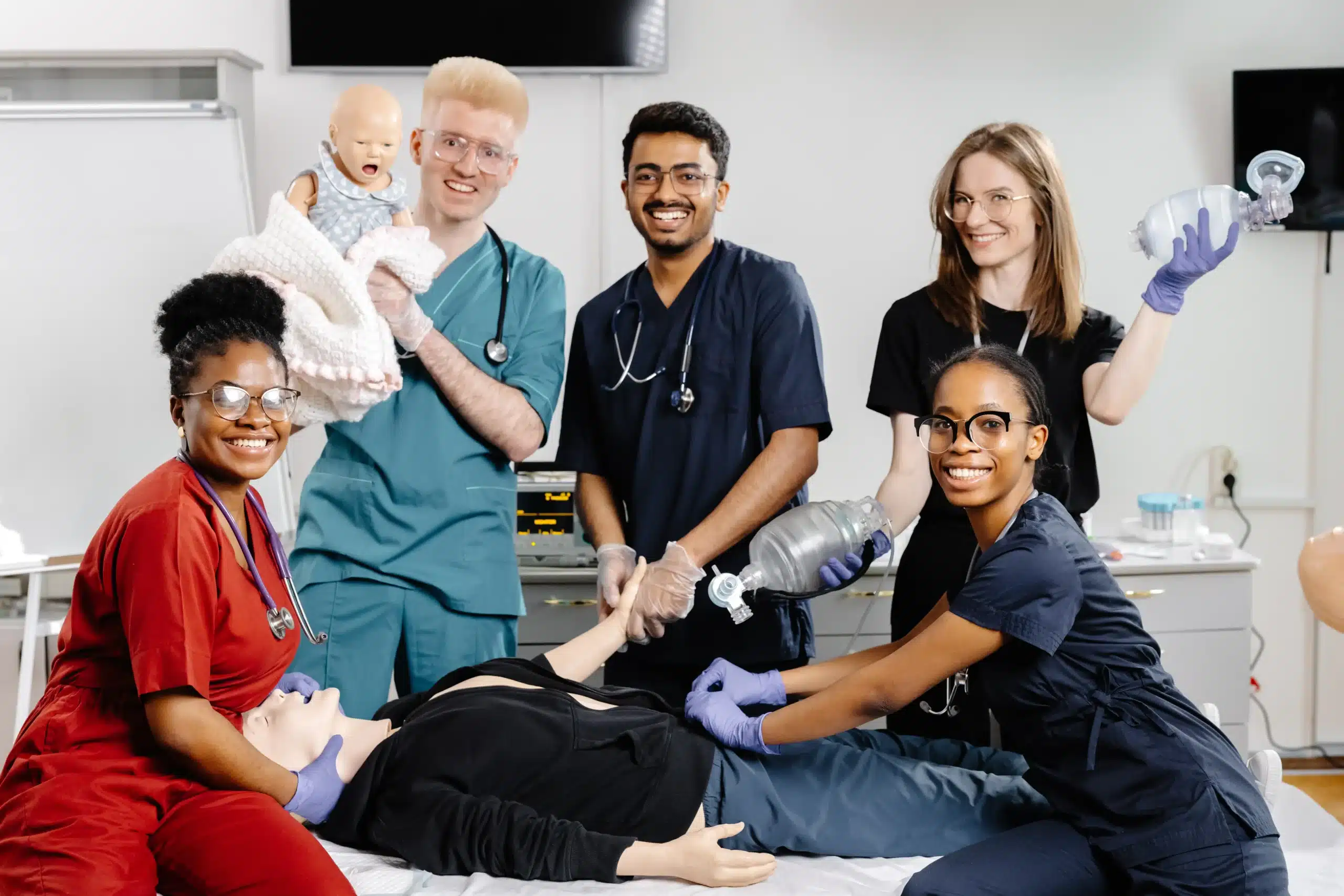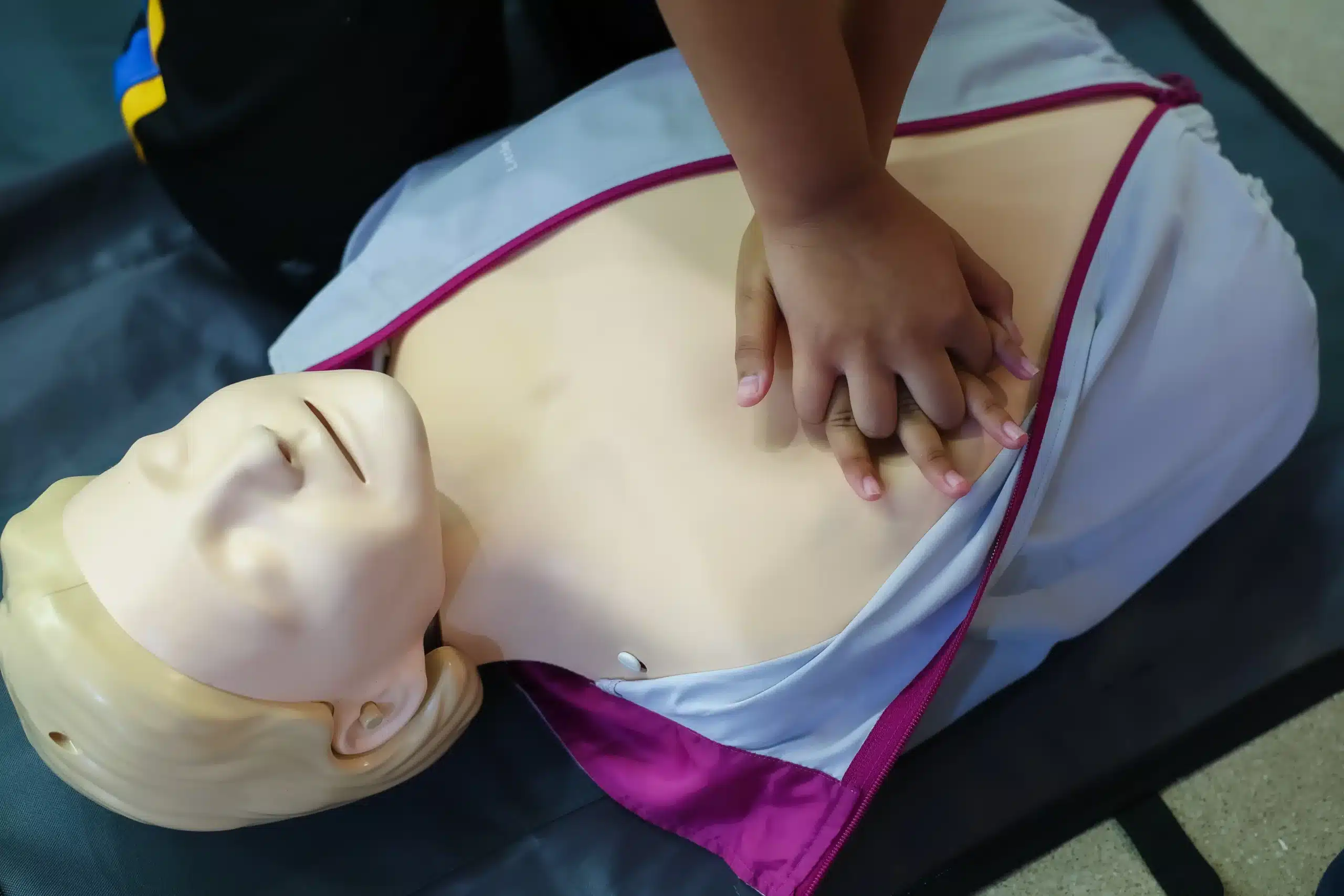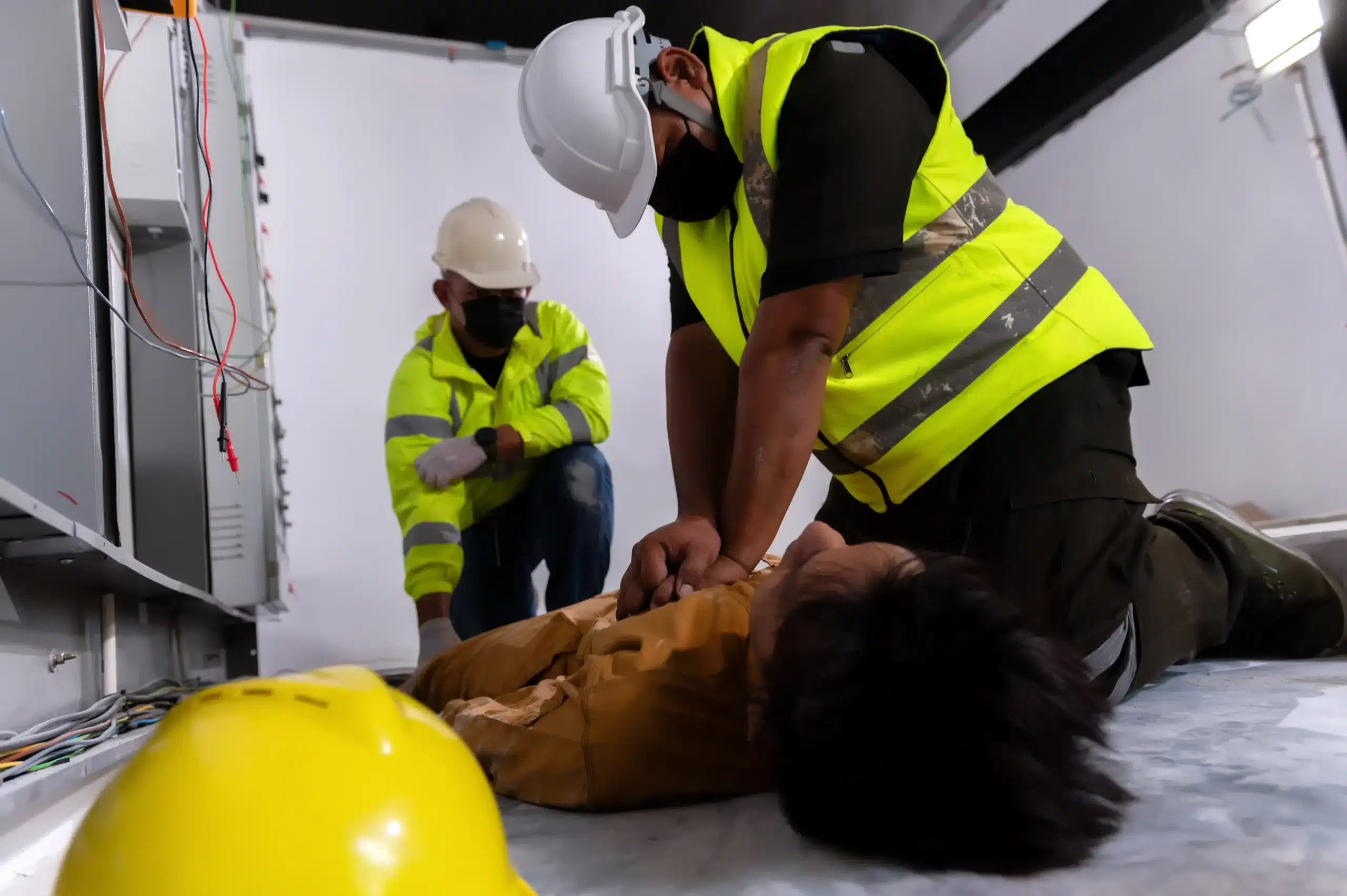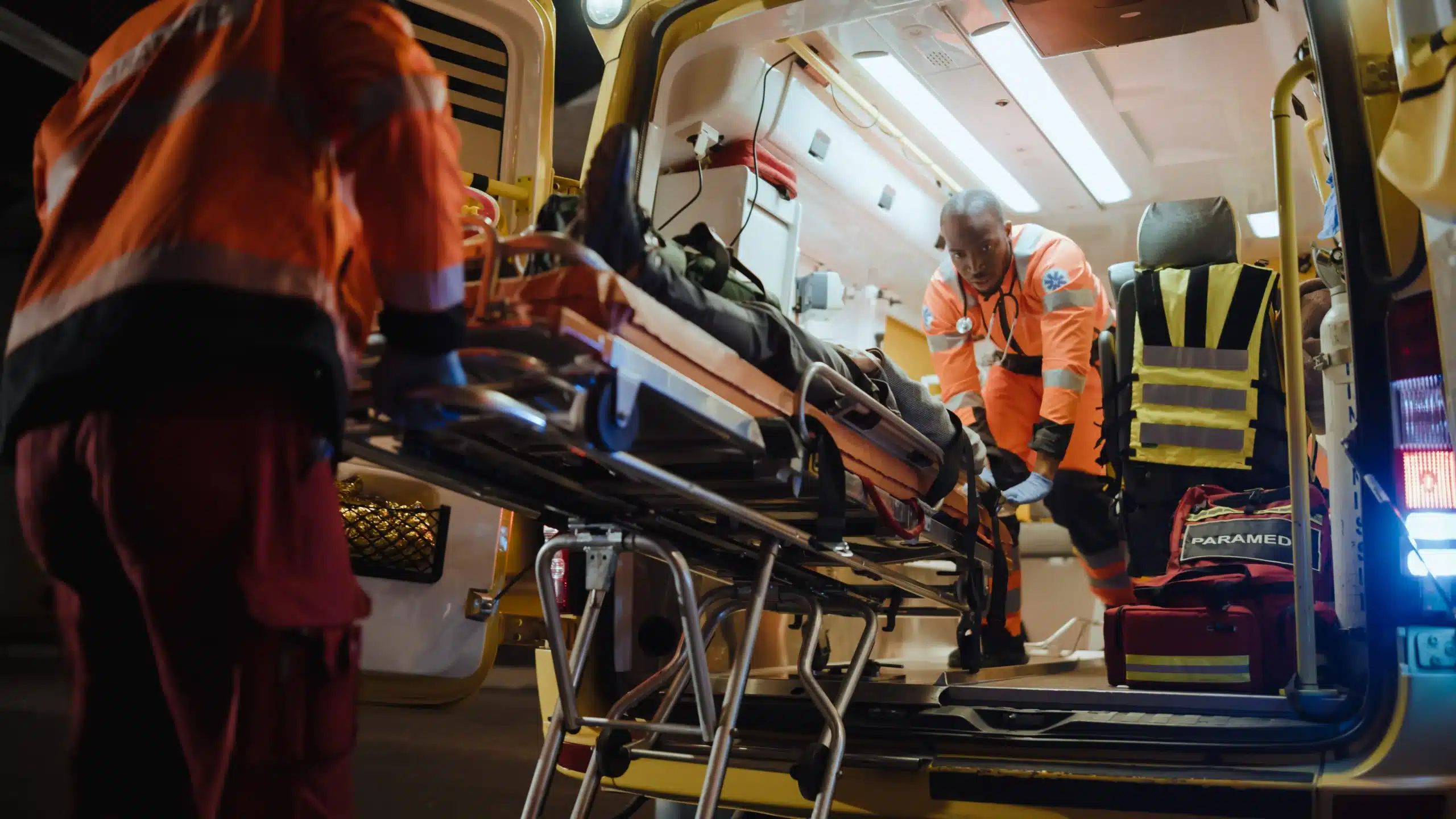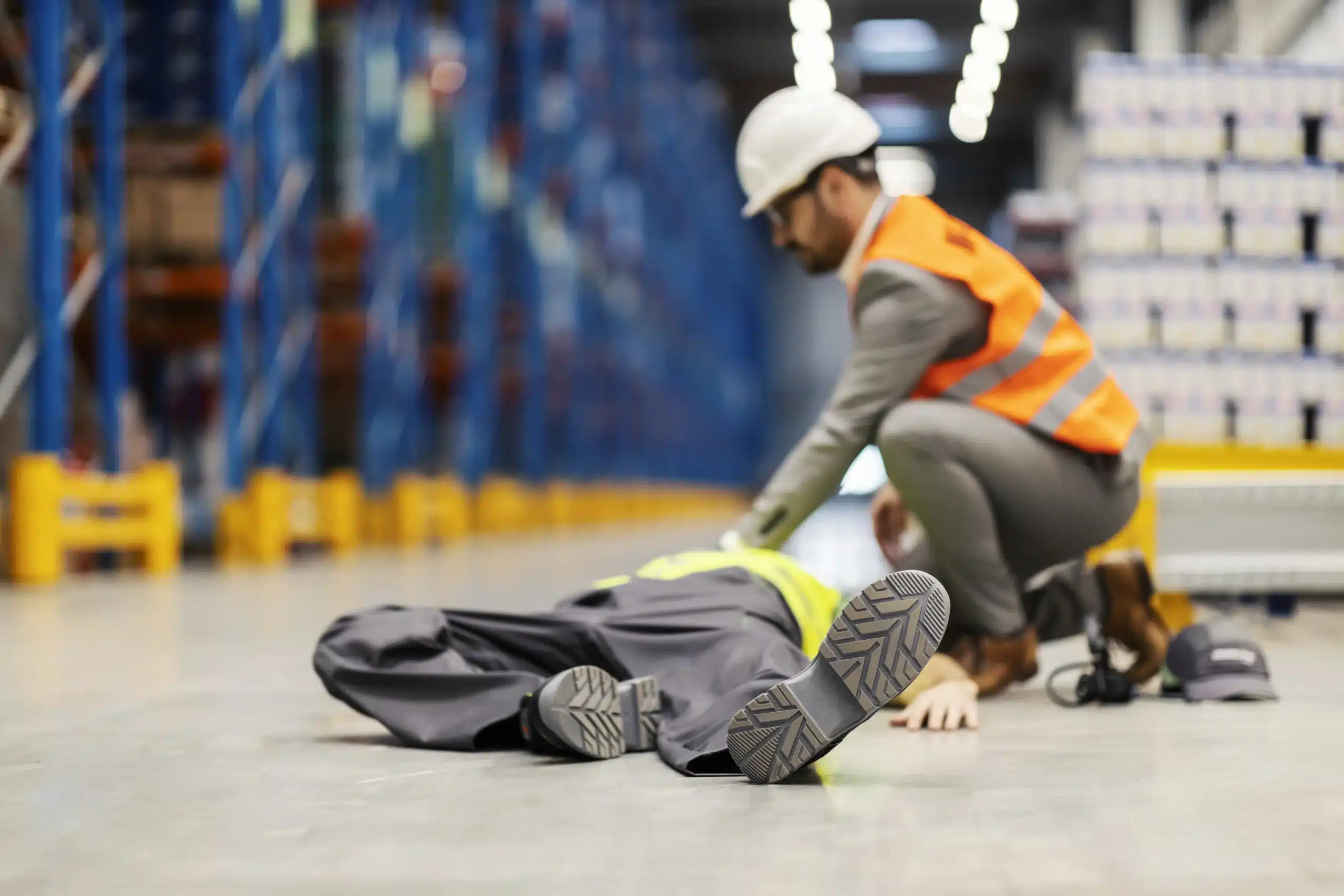Empowering yourself with life-saving skills is one of the most valuable things you can do, both for yourself and your community. If you’re in the Visalia area, CPR training Visalia is readily available and offers a range of courses to suit different needs. This post will guide you through the process of finding the right CPR training in Visalia, from understanding the different types of courses available to choosing a reputable training provider. We’ll also cover what to expect during a typical CPR class, the costs involved, and the importance of maintaining your certification. Whether you’re a healthcare professional, a teacher, a parent, or simply someone who wants to be prepared for emergencies, this guide will help you find the perfect CPR training Visalia.
Key Takeaways
- CPR training empowers you to save lives: Equipping yourself with CPR skills allows you to confidently handle medical emergencies and make a real difference. Explore various CPR courses to find one that suits your needs.
- Select a reputable training provider: Look for qualities like AHA certification, experienced instructors, and comprehensive course offerings when choosing a provider. Consider factors such as location and schedule flexibility.
- Stay current with CPR guidelines: Maintain your skills and knowledge by renewing your certification regularly and seeking continuing education opportunities to ensure you’re always prepared for emergencies.
What is CPR Training in Visalia?
CPR training in Visalia equips you with the life-saving skills to respond to cardiac arrest and other medical emergencies. As an authorized American Heart Association (AHA) training center, CPR Visalia offers various certification courses, including BLS, ACLS, PALS, and First Aid. These courses combine classroom instruction with hands-on practice, ensuring you gain the confidence and competence to act quickly and effectively in critical situations. Located in Visalia, our training center serves the surrounding communities of Tulare and Delano, providing convenient access to high-quality CPR education. You can find more information about our BLS courses on our website.
Why CPR Training Matters
CPR can significantly increase the chances of survival for someone experiencing cardiac arrest. Learning CPR empowers you to take immediate action while waiting for professional medical help to arrive. Dispelling common misconceptions about CPR is crucial. It’s not just for medical professionals; anyone can learn and apply these life-saving techniques. CPR training provides the knowledge and skills to assess an emergency, perform chest compressions, and provide rescue breaths—potentially making the difference between life and death. For healthcare professionals seeking to maintain their resuscitation skills, we also offer RQI classes.
Who Needs CPR Certification?
While everyone can benefit from CPR training, certain professions require certification. Healthcare providers, including doctors, nurses, and paramedics, typically need BLS certification. Many other professions, such as lifeguards, teachers, and childcare providers, also require or benefit from CPR certification. Even if your job doesn’t specifically require it, having CPR certification can be a valuable asset, demonstrating your preparedness to handle emergencies. If you’re unsure whether you need CPR certification, check with your employer or professional organization. You can also contact us to discuss your specific needs and find the right course. We offer a low price guarantee for all our courses, making these life-saving skills accessible to everyone. Check our BLS course schedule to find a class that fits your schedule.
Top CPR Training Providers in Visalia
Finding the right CPR training provider is crucial for receiving quality instruction and obtaining a recognized certification. Here are some of the top CPR training providers in Visalia:
Safety Training Seminars
Safety Training Seminars in Visalia offers a comprehensive range of CPR and first aid courses, including BLS, ACLS, PALS, and NRP. Known for their high-quality training, they adhere to American Heart Association standards. Their courses equip participants with the skills to respond effectively in emergencies. Check their website for their Low Price Guarantee and explore their BLS course schedule to register for a class. Contact Safety Training Seminars with any questions.
Visalia CPR
Visalia CPR is an authorized American Heart Association training center specializing in CPR and first aid training. They offer various courses, including BLS, Heartsaver CPR AED, and Bloodborne Pathogens training. Their programs cater to both healthcare professionals and the general public, ensuring everyone can learn these essential skills. Visit the Visalia CPR website for more information.
Southern’s CPR & First Aid Training
Southern’s CPR & First Aid Training provides a wide array of CPR and first aid courses in Visalia. They offer classes in both English and Spanish, catering to individuals, healthcare professionals, and businesses. This inclusive approach makes their training accessible to diverse audiences. Learn more at the Southern’s CPR website.
College of the Sequoias
The College of the Sequoias offers Basic Life Support (BLS) CPR classes leading to American Heart Association certification—essential for many healthcare jobs. With classes available in Visalia, Hanford, and Tulare, they offer convenient access to quality training. Find program details on the College of the Sequoias website.
CPR Course Types and Content
Choosing the right CPR course depends on your individual needs and goals. Here’s a breakdown of the different CPR course types offered in Visalia:
Basic Life Support (BLS)
BLS training is essential for healthcare providers. This course focuses on recognizing life-threatening emergencies, performing high-quality CPR, and using an AED. BLS certification equips participants with the skills to respond effectively in critical situations. Learn more about our BLS certification course.
Heartsaver CPR AED
The Heartsaver CPR AED course is designed for people outside the healthcare field, such as teachers, coaches, and parents. It covers the basics of CPR and AED use, empowering individuals to assist in emergencies. This course builds confidence and provides essential life-saving skills. Our Heartsaver CPR AED course offers comprehensive training for anyone who wants to be prepared.
First Aid
First Aid training is valuable for anyone who wants to handle medical emergencies. This course teaches essential skills like wound care, managing choking, and recognizing serious medical conditions. Often paired with CPR training, First Aid certification provides a well-rounded skill set. Find details about our First Aid training on our Yelp page.
Pediatric CPR
Pediatric CPR training focuses on the specific needs of infants and children. This course is essential for parents, caregivers, and anyone regularly interacting with young children. Learning Pediatric CPR provides the skills to respond effectively in emergencies involving infants and children. Visit our website for more information on Pediatric CPR.
Advanced Cardiac Life Support (ACLS)
ACLS is an advanced course for healthcare providers who manage cardiovascular emergencies. This training covers advanced interventions, including medication administration and advanced airway management. ACLS certification is vital for professionals in emergency medical services, hospitals, and critical care settings. Learn more on our ACLS page.
Pediatric Advanced Life Support (PALS)
PALS training equips healthcare providers with the skills to manage critically ill infants and children. This course emphasizes early recognition and intervention in pediatric emergencies, covering advanced techniques specific to this population. PALS certification is crucial for professionals working in pediatric intensive care and emergency departments. Our PALS training provides comprehensive instruction in these advanced life-saving techniques.
What to Expect During CPR Training
CPR training blends practical skills with essential theory. Here’s a glimpse of what you can expect:
Hands-on Practice
CPR training is very hands-on. At Safety Training Seminars, a woman-owned AHA Training Center, you’ll learn proper techniques for chest compressions, rescue breaths, and using an AED. Expect to practice on mannequins designed for real-life scenarios. This hands-on practice builds muscle memory and confidence, preparing you for actual emergencies. You’ll receive personalized feedback from your instructor to refine your technique and ensure you’re comfortable performing CPR. Classes are offered daily in Visalia and surrounding areas.
Theoretical Knowledge
While hands-on practice is key, understanding the why behind CPR is equally important. Your training will cover vital topics like recognizing cardiac arrest, understanding how CPR circulates oxygenated blood, and debunking common CPR myths. This knowledge helps you make informed decisions under pressure and understand each step’s importance. A solid grasp of the theory behind CPR empowers you to act confidently and effectively.
Certification Process
Upon successful completion, you’ll receive certification. The American Heart Association RQI program is a popular choice for medical professionals seeking BLS, ACLS, and PALS certification. This program offers a streamlined, modern approach. Your instructor will explain the process, including accessing your official AHA certification card. This card validates your training and demonstrates your CPR readiness. Remember to keep your certification current through renewal courses to maintain your skills and knowledge. Safety Training Seminars offers a low price guarantee. Contact them with any questions.
CPR Training Costs in Visalia
CPR training is an investment in life-saving skills, and understanding the costs involved can help you plan accordingly. Let’s break down the typical expenses associated with CPR certification in Visalia.
Average Price Range
CPR course fees in Visalia vary depending on the provider and the type of certification you need. Basic Life Support (BLS certification), for example, might fall within a different price range than Advanced Cardiac Life Support (ACLS). Expect to see prices starting around $70 and potentially going higher for more specialized courses. It’s always a good idea to check directly with providers like Safety Training Seminars for their most up-to-date pricing. Keep in mind that textbooks, if required and purchased on-site, usually incur a separate fee. If you opt for an online class, a physical textbook may not be necessary.
Factors Affecting Cost
Several factors influence the overall cost of your CPR training. The level of certification plays a significant role, with more advanced courses like ACLS typically costing more than basic CPR. The course format also matters; in-person classes sometimes have different pricing than online or blended learning options. Whether the course includes additional certifications, like First Aid, can also impact the final price. Finally, your chosen training provider’s pricing structure will contribute to the overall cost.
Payment Options and Financing
Most CPR training providers offer various payment methods. These typically include major credit cards, debit cards, and sometimes even financing options like Afterpay. Some providers, especially for on-site textbook purchases, may require cash. It’s always best to confirm accepted payment methods with your chosen provider before registering for a class.
Discounts and Group Rates
If you’re training with a group or are part of an organization, inquire about potential discounts. Many CPR training providers offer reduced rates for group bookings. Some providers may also offer discounts for students or seniors. Don’t hesitate to ask about available discounts. You can often find this information on the provider’s website or by contacting them directly to discuss group rates.
Instructor Qualifications and Course Quality
Choosing the right CPR training course can feel overwhelming, but focusing on a few key factors simplifies the process. Prioritizing instructor qualifications and course quality ensures you receive valuable, up-to-date training.
American Heart Association Certification
A key factor to consider when selecting a CPR training provider is whether instructors hold American Heart Association (AHA) certification. AHA certification means the courses adhere to the latest scientific research and meet stringent quality standards. Safety Training Seminars in Visalia proudly offers official AHA-certified courses, giving you confidence in the quality and relevance of your training. This commitment to AHA guidelines ensures you learn the most current and effective life-saving techniques.
Experience in Emergency Response
Beyond certification, real-world experience matters. Instructors with a background in emergency response bring a practical understanding that goes beyond the textbook. They can offer valuable insights and better prepare you for the challenges of real-life emergencies. Safety Training Seminars emphasizes the practical experience of their instructors, combining AHA certification with real-world knowledge for comprehensive and effective training.
Ongoing Professional Development
The medical field is constantly evolving. Look for CPR instructors committed to ongoing professional development. Continuing education ensures instructors stay informed about the latest guidelines, techniques, and research in CPR and emergency care. This dedication to lifelong learning benefits you directly, enriching your training and equipping you with the most current knowledge and skills.
Choose the Right CPR Training Provider
Finding the right CPR training provider is crucial for a valuable learning experience. Here’s what to consider:
Accreditation and Reputation
Start by checking a provider’s accreditation and reputation. Look for organizations recognized by reputable bodies like the American Heart Association (AHA). Safety Training Seminars in Visalia, for example, is an AHA Training Center, meaning their training meets high-quality standards. Reading reviews can also give you insights into past students’ experiences.
Course Offerings and Flexibility
A good provider should offer a variety of courses to fit your needs. Think about whether you need Basic Life Support (BLS), First Aid, or more specialized training like Pediatric Advanced Life Support (PALS). Safety Training Seminars offers a range of courses, including BLS, ACLS, PALS, and First Aid. Check the provider’s schedule, too. Flexible scheduling makes it easier to find a time that works for you. Safety Training Seminars offers BLS courses in Visalia daily.
Location and Accessibility
Finally, consider location and accessibility. If you’re in Visalia, Tulare, or Delano, Safety Training Seminars has a convenient location for you. Think about how far you’re willing to travel and whether the training center is easy to find. If you have any special accessibility needs, contact the provider beforehand to ensure they can accommodate you. A provider’s commitment to accessibility demonstrates their dedication to serving everyone.
Benefits of CPR Training
Learning CPR offers significant advantages, from personal preparedness to workplace safety and broader community impact. It empowers you to confidently respond to emergencies and potentially save lives.
Personal Preparedness
CPR training equips you with the skills to handle emergencies involving cardiac arrest or respiratory distress. Knowing how to assess a situation, perform chest compressions, and provide rescue breaths can make a crucial difference while waiting for professional medical help. This knowledge translates into increased confidence and the ability to act quickly and effectively under pressure. Dispelling common misconceptions about CPR further strengthens your preparedness, allowing you to act decisively when every second counts.
Workplace Safety
Many workplaces require or encourage employees to have CPR certification. This is especially true in healthcare settings, educational institutions, and other environments where medical emergencies are more likely. Safety Training Seminars provides comprehensive training in essential life support techniques like BLS, ACLS, and PALS, ensuring workplaces are prepared for various medical scenarios. Having trained personnel on-site can significantly improve response times and outcomes in emergencies, creating a safer environment for everyone.
Community Impact and Lifesaving Potential
CPR-trained individuals become valuable assets to their communities. They can respond to emergencies in public spaces, at home, or while traveling, providing immediate assistance before paramedics arrive. This immediate intervention can dramatically increase the chances of survival for someone experiencing cardiac arrest. Understanding the facts about CPR empowers individuals to make informed decisions and act confidently in critical situations. Addressing common CPR myths is crucial for encouraging more people to learn this vital skill and contribute to a more prepared and resilient community.
Common CPR Misconceptions
It’s easy to get confused about CPR, especially with so much information (and misinformation) circulating. Let’s clear up some common myths and look at the realities of this life-saving technique.
Debunking Myths
One persistent myth is that CPR always revives someone. Sadly, this isn’t the case. While CPR is crucial and can dramatically increase someone’s chances of survival, it’s not a guarantee. It does help maintain vital blood flow to the brain and other organs until paramedics arrive, giving the person the best possible chance. Richmond Training Concepts offers more information on this misconception. Another misconception is that only medical professionals can perform CPR. Anyone can—and should—learn CPR. Proper CPR training empowers you to take action in an emergency. You don’t need a medical background to make a difference. Finally, some believe CPR restarts the heart. CPR primarily keeps oxygenated blood circulating. It’s the defibrillator or advanced medical care that typically restarts the heart, as explained by Reeves Training.
Understanding the Reality of CPR
There are a few other important points to understand about CPR. Some believe you should continue CPR until the person revives. Current guidelines, however, emphasize performing compression-only CPR until professional help arrives or the person shows clear signs of life, like normal breathing. You can find more details on these guidelines at Safety Training Seminars. It’s also important to remember that CPR is only for someone unresponsive and not breathing. Performing CPR on a conscious person is unnecessary and could cause harm. CPR Baton Rouge clarifies this point. Understanding these facts can help you act confidently and effectively in a real emergency. Contact Safety Training Seminars in Visalia, CA to learn more about our CPR courses and how you can become certified.
Maintain Your CPR Certification
Keeping your CPR skills sharp is crucial for responding effectively in emergencies. It’s not a one-and-done deal; staying certified means refreshing your knowledge and techniques regularly. This section covers everything you need to know about maintaining your CPR certification.
Renewal Requirements
CPR certifications typically expire after two years. Renewal involves taking a shorter refresher course designed for those with current or recently expired credentials. These refresher courses cover essential skills, update you on the latest guidelines, and extend your certification. Check with your certifying organization, such as the American Heart Association or the American Red Cross, for specific requirements. At Safety Training Seminars, our certifications are valid for two years, ensuring you have ample time to practice and utilize your skills.
Continuing Education Opportunities
Beyond basic renewal, consider expanding your skillset with continuing education. Safety Training Seminars offers a variety of advanced courses, including ACLS and PALS, to enhance your life-saving abilities. These courses delve into more specialized techniques and are particularly beneficial for healthcare professionals and those seeking more comprehensive training. Consider additional certifications like First Aid or Basic Life Support (BLS) to broaden your knowledge and preparedness.
Stay Updated with Latest Guidelines
Emergency care procedures evolve with ongoing research and best practices. Staying informed about the latest CPR guidelines is essential for providing the most effective care. Misinformation can hinder proper response, so regularly reviewing credible sources like the American Heart Association is crucial. This ensures you’re always prepared to act confidently and correctly in a crisis. Consider subscribing to newsletters or following relevant organizations on social media to stay informed about updates and changes to CPR guidelines.
Related Articles
- Why CPR is Important in Healthcare – Visalia CPR Classes
- Debunking Common CPR Myths
- The Science Behind Effective CPR – Visalia CPR Classes
- CPR, BLS, ACLS, PALS, & First-aid Classes in Visalia, CA
- Prepare for Your CPR Class in Visalia, CA – Key Course Info
Frequently Asked Questions
How much does CPR training cost in Visalia? CPR training costs in Visalia vary based on the course type and provider. Basic CPR courses generally start around $70, while more advanced certifications like ACLS will be more expensive. Check with specific providers like Safety Training Seminars for their current pricing and any available discounts. Also, factor in potential textbook costs if required.
What different types of CPR courses are available? Several CPR courses cater to different needs. Basic Life Support (BLS) is crucial for healthcare providers, while Heartsaver CPR/AED suits non-medical professionals. First Aid courses teach essential emergency response skills, and Pediatric CPR focuses on infants and children. Advanced certifications like ACLS and PALS are available for healthcare professionals dealing with more complex emergencies.
How do I choose a reputable CPR training provider? Look for providers with recognized accreditations, like American Heart Association (AHA) certification. Check online reviews and consider factors like instructor experience, course offerings, schedule flexibility, location, and accessibility. A provider’s reputation and commitment to quality instruction are key to a positive learning experience.
What can I expect during a CPR training class? Expect a blend of hands-on practice and theoretical learning. You’ll practice chest compressions, rescue breaths, and AED use on mannequins. The course will also cover essential theory, such as recognizing cardiac arrest and understanding the principles behind CPR. Instructors provide feedback and guidance to ensure you’re comfortable performing the techniques.
How do I maintain my CPR certification? CPR certifications typically expire after two years. Renew your certification by taking a refresher course before it expires. These courses cover essential skills and update you on the latest guidelines. Staying current with your certification ensures you’re always prepared to respond effectively in an emergency.
This article was written for free by MEGA SEO.
